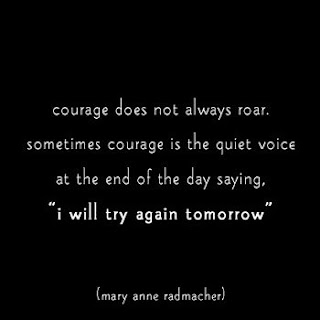 'The Descendants' moved me. And not only to want to book a vacation in Hawaii, tempting though that seems right now as we plunge into another cold snap just when it looked like spring was on the way. The performances and script complemented eachother beautifully, and the casting was the cherry on the top of an already promising sundae. It's the type of film that will maybe take a few days to settle.
'The Descendants' moved me. And not only to want to book a vacation in Hawaii, tempting though that seems right now as we plunge into another cold snap just when it looked like spring was on the way. The performances and script complemented eachother beautifully, and the casting was the cherry on the top of an already promising sundae. It's the type of film that will maybe take a few days to settle. I hadn't seen the trailer, or read a review, and there are several other pictures out now that were higher on my list, yet it appealed this weekend.
I adore the cinema. I love going to the cinema. Particularly if its an Everyman, Picture House or Curzon.
In chronological order, the highlights of my trips to the cinema in 2011 were...
The King's Speech
Black Swan
Never Let Me Go
Bridesmaids
Larry Crowne
The Tree of Life
Horrible Bosses
The Inbetweeners Movie
One Day
Tinker Tailor Soldier Spy
Melancholia
The Big Year
The Help
We Need to Talk about Kevin
My Week with Marilyn
Creature of habit that I am, I usually head for the middle of the cinema (like most people, I s'pose). As the cinema trip was rather spontaneous this wasn't an option. There weren't any options. It was front row, or no row. I looked at George (Clooney) and he looked back at me. What's not to like? The closer the better, I thought. The reclining seat meant that the 8 foot between he and I was comfortable. The fact that I couldn't see the back of anyone's head inbetween us, perfect.
In chronological order, the highlights of my trips to the cinema in 2011 were...
The King's Speech
Black Swan
Never Let Me Go
Bridesmaids
Larry Crowne
The Tree of Life
Horrible Bosses
The Inbetweeners Movie
One Day
Tinker Tailor Soldier Spy
Melancholia
The Big Year
The Help
We Need to Talk about Kevin
My Week with Marilyn
Creature of habit that I am, I usually head for the middle of the cinema (like most people, I s'pose). As the cinema trip was rather spontaneous this wasn't an option. There weren't any options. It was front row, or no row. I looked at George (Clooney) and he looked back at me. What's not to like? The closer the better, I thought. The reclining seat meant that the 8 foot between he and I was comfortable. The fact that I couldn't see the back of anyone's head inbetween us, perfect.
The film is, essentially, a character study and a testament to the trials and achievements of human frailty and emotion. Time seems suspended as the audience are invited into an intimate observation of a family gathering its resources, just trying to do its best in the unfortunate circumstances fate has launched them headlong into.
Clooney inspires terrific empathy as we see him clumsily making-it-up-as-he-goes-along, desperately seeking the 'how to deal with all your worst nightmares, at once' manual. There are more than a couple of seriously poignant moments that tug at the heartstrings and even the most callous of movie goers could not, I think, fail to feel at least something vaguely emanating from the cardiac muscle.
Alexander Payne has encapsulated unforeseen single parent living beautifully, and the performances of Clooney's two daughters, Alexandra (17) and Scottie (10) are warm and warming. Emotions are never far from the surface amongst this family whose tragic reality brings them closer, not least the scene during which Matt (Clooney) attempts to speak with his elder daughter by the pool, and her response to his clumsy handling of such a delicate situation both seen by him and unseen (as we see her underwater). A close second would be the dockside-clad sprint when Clooney learns a painful truth from his apparently been-there-done-that-got-the-T-shirt teen.
Few might find this film too long, or too slow, or lacking in direction. I'm not one of them. In fact, I think its simplicity is rather beautiful. There aren't enough movies like this - in which one is transported into the here-and-now pain and hurt of a family trying to come to terms with imminent loss - of someone they love, of the future they had envisaged and the relationships they hadn't valued until they stood to lose them. I can't see how any homosapien couldn't appreciate the raw presentation of something we can all either relate to, or will one day have to. The laugh out loud lines sprinkled liberally throughout the score add finesse to this fine film and, in my humble opinion, render it a must-see movie.































